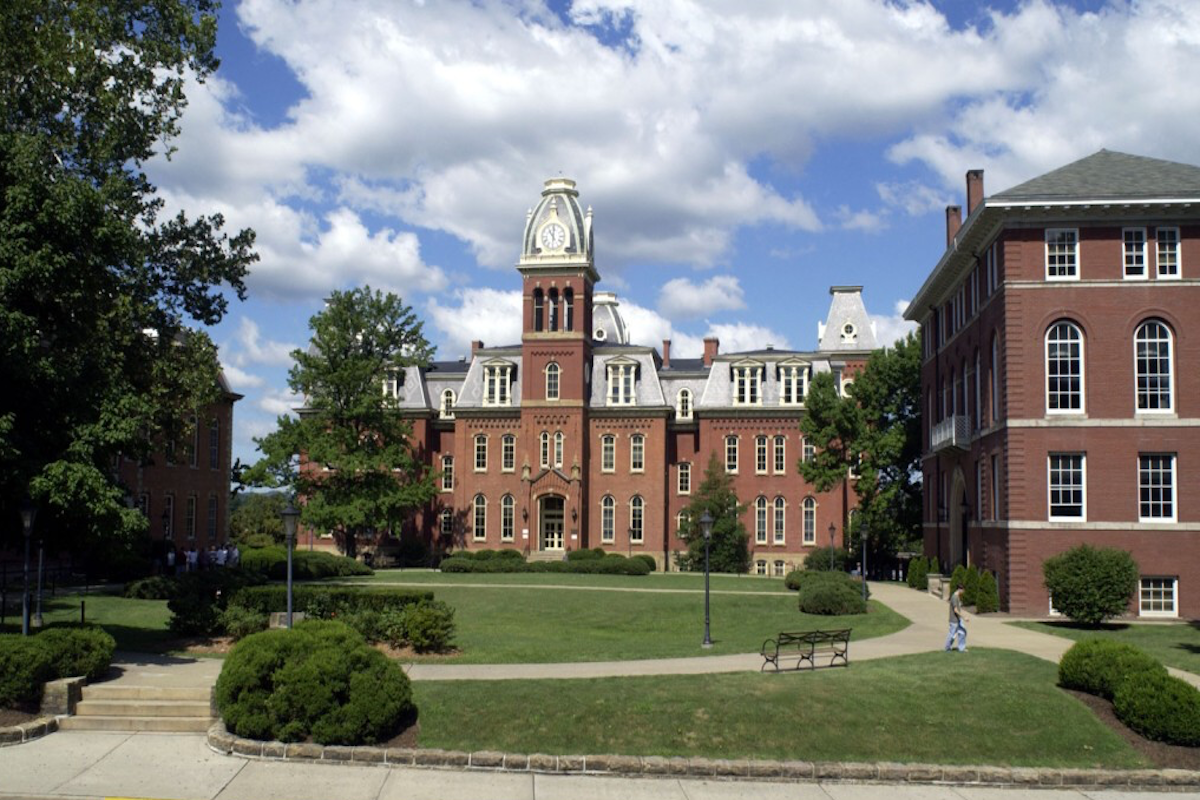

Woodburn Hall at West Virginia University (Photo by Swimmerguy269/Creative Commons Attribution-Share Alike 3.0 Unported license)
Dear Mountaineer family,
This letter is an ode for change, a signifier of hope that the institution will listen to my words once again to foster spaces that embrace empowerment for Latinx students.
Two years ago, I wrote the letter “A Concerned Latinx Student” at a time when I was deeply displaced and longing to find a home within a predominately white institution. I was lost, confused, melancholy, and I desired to find myself within the stories of mentors and other Latinx students on campus.
Post-publication of my letter, I eventually found resources at West Virginia University. I encountered a loving community of Latinx mentors and faculty who also shared a passion for institutional social justice. We worked to implement microaggression training and host community roundtables, crucial inclusive practices that welcome difference at the forefront of pedagogy. But my Latinx community still yearns and hopes for an institutional change in discourse because current efforts are not enough for the inclusivity of Latinx students. Our hearts ache for a student-run space that fosters community, freedom, and belonging for our people.
I have many questions for the university. I demand rejoinder. I understand we need to heal, that we need to recover from institutional exclusion, but how does a community heal when we lack resources that bring us together as a united coalition? This letter is not just an ode, but a call for action, a demand for my community. The institution is paying attention to diversity, it is attempting to create spaces of acceptance, but how does my community thrive when we need spaces to survive?
The institution is asking for bureaucracy and formality, they are requiring we write a formal plan to secure a space for Latinx students, but this process only hinders a student’s perception of what they can achieve in changing their university. How does a first-generation Chicana who comes from intergenerational poverty understand and develop an intricate plan when her entire life she has only known knowledge from her community?
We must turn away from institutional formality as an act of change. We need to engage in viable solutions that benefit Latinx students on campus because when the institution holds space captive it divides the community and enforces divergent collectivity. There are many marginalized groups on campus who have secured student spaces for their community, but this is not the case for Latinx students. Both students and faculty are trying to work with the institution to secure spaces for a Latinx congregation, but whenever we engage, we face borders that prohibit solution-making.
I do not believe we are asking for an impossible demand or complication solution. The space does not need staffing. It just needs our presence. Give us the back of a classroom, a lounge, or a closet. No nos importa. We just want a space, a place for Latinx students to gather so we can thrive within a PWI (Predominately White Institution). Imagine a student body with a hub for Latinx students to gather and exist freely. Think of how beautiful and transformational that would be. What would this change in discourse look like for an incoming freshman who desires to find community at WVU? Maybe the younger enraged me would have found belonging earlier and encountered a love for my brownness before a voyage of self-discovery.
I’m asking the university to take this letter and strongly consider its posed questions as a reference point for praxis. I believe we can create a unified campus that welcomes difference, but we must strongly analyze the gaps of inequality present in our Mountaineer family in order to enact meaningful change for ourselves and the Latinx community.
In solidarity,
Kassandra Colón
“A Concerned Latinx Student”


